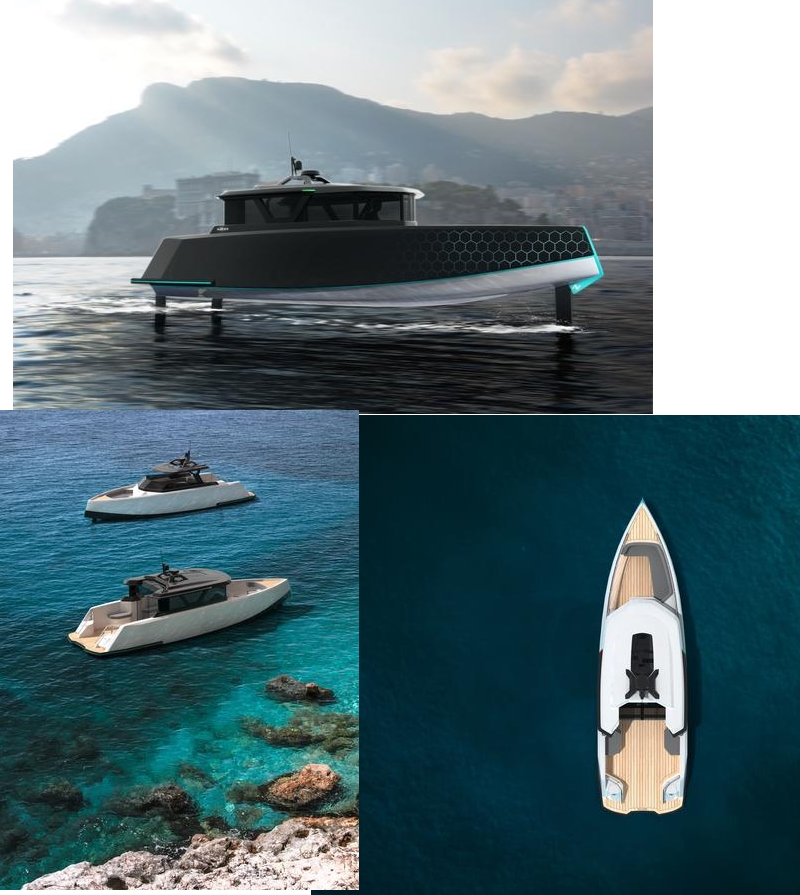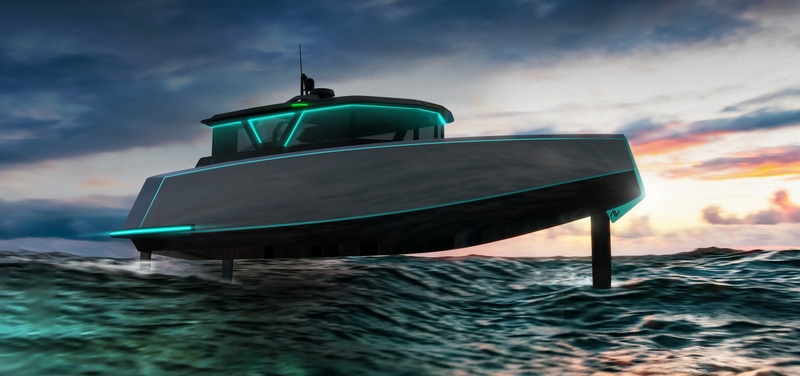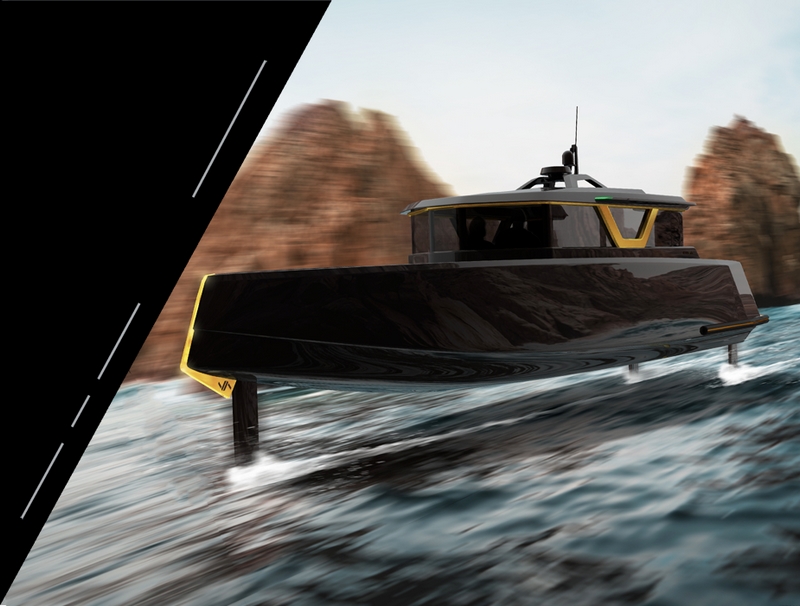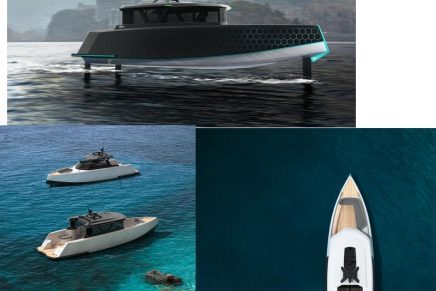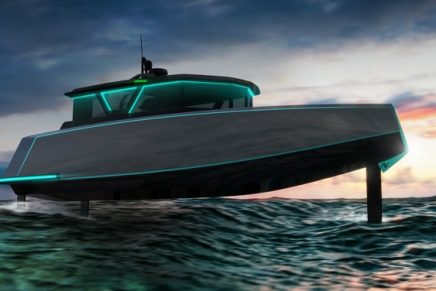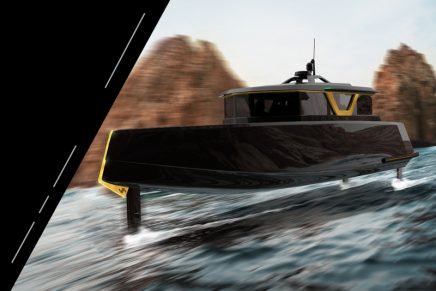Just as electric vehicles are having a moment, so are eco-friendly, electric boats.
Specifically, an all-electric, hydrofoil, performance craft outfitted with a highly advanced autopilot.
Navier is a Silicon Valley startup that’s building technology to increase the efficiency of small powerboats by 90% while ensuring zero emissions and superior ride performance. To make this vision a reality, co-founders Sampriti Bhattacharyya and Reo Baird signed with Lyman-Morse shipyard in Camden, Maine to build the first year production slot for Navier 27.
Lyman-Morse is a well-respected shipyard with roots in the boat building industry dating back to 1978. The yard is well-known for producing custom sailing yachts and custommotor yachts that are sleek and ahead of their time; the company frequently collaborates with naval architects and design firms to bring concepts to life.
Navier is producing a limited number of boats in its first year under its Pioneer Program. As the startup focuses on technology development for Navier 27, they wished to partner with an innovative and capable yard. Lyman-Morse is one of the few shipyards in the United States that has experience working with high-tech, carbon composite boats. As a bonus, the shipyard’s location is an up-and-coming tech hub with a strong boat-building heritage; Maine is a strategic and ideal setting for Navier’s project.
“Very few shipyards have the extensive experience, in-house capabilities, and deep interest in high-tech projects as Lyman-Morse. Plus, Maine has a long history in boat building, which makes it a special place to build Navier 27,” said Co-founder and CEO, Sampriti Bhattacharyya.
“Navier 27 represents a solid rebuke of conventional wisdom – a boat that delivers silent, eco-friendly electric operation without sacrificing on performance and utility. But, to live up to the moniker, “the boat of the future”, Navier 27 had to be more. We aim to re-imagine the experience of operating a boat and bring technological innovations that truly set us apart.”
Navier 27 is a 27-foot foiling performance vessel that’s capable of a range exceeding 75 nautical miles under electric propulsion and includes advanced autonomy features.
When it launches during the Fort Lauderdale International Boat Show in 2022, it will be the longest-range electric boat in the world. If anyone is capable of making this vision come to life, it’s Drew Lyman and his team.
“What has me – and all of us at Lyman-Morse – excited about the partnership with Navier is that we are developing something that is cutting edge and certain to be the future of yachting in this type of market,” commented President and Owner of Lyman-Morse, Drew Lyman. “To build a carbon fiber, foiling, all-electric boat fits well with what we do at Lyman-Morse, plus it’s a boatbuilder’s dream project. We [Lyman-Morse] built a reputation for beautifully crafted boats, and we are extremely proud of our ability to implement advanced systems and technology. This is exactly what the Navier project embodies!”
Spearheaded by two MIT engineers, Navier is teaming up with the most talented minds to build the boat of the future. In July 2021, the startup announced that America’s Cup engineer and foiling expert, Paul Bieker is leading Navier’s naval architecture and mechanical design by contributing his knowledge in hydrofoil configuration and foil optimization.
Lyman-Morse will tie the technology, mechanics, construction, and manufacturing of the boat together.
“There’s a lot to be said about working with a shipyard beyond skills and capabilities. Lyman-Morse is outfitted with the best machines, tools, and technologies that will help Navier reach production goals. Drew has enthusiasm for our vision, and his team truly cares about sustainability,” said Sampriti. “We’re grateful that Drew and his team are excited to make Navier 27 a reality with us.”

